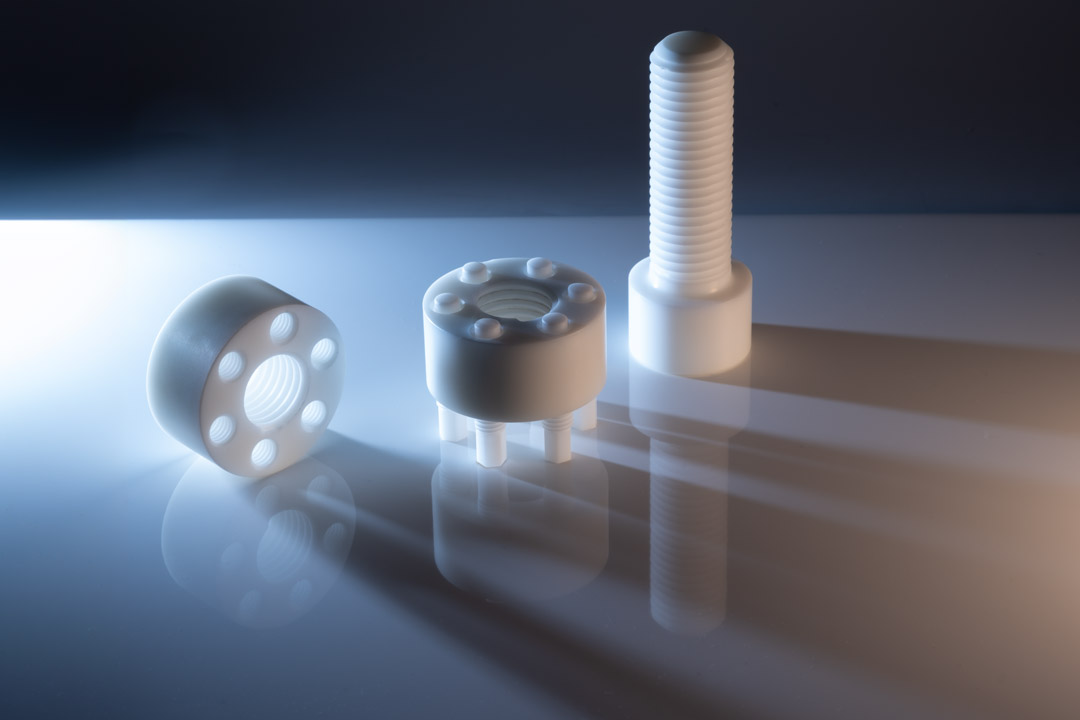Wherever high temperatures and/or aggressive chemical influences prevent the use of plastic or steel screws, screws and nuts made of technical ceramics can be a possible solution. Of course, there are clear application limits here too, as the strength typically decreases as the temperature increases. In addition, the tensile stresses (prestresses caused by tightening torques), which are intended to prevent a metallic screw from loosening automatically, are unfavorable for ceramic materials. Especially since ceramics have little elastic ability to change shape. Therefore, in many cases, additional mechanical screw locks are necessary to prevent the connection from unintentionally loosening. Unfortunately, the well-known standard threads for ceramics are also counterproductive with regard to notch stresses.
Ceramic screw connections made of zirconium oxide for use under high mechanical, corrosive and thermal loads
The aim of the project, which was implemented together with the Fraunhofer Center HTL and funded by the Federal Ministry of Economics and Technology (BMWi), was to develop a new screw connection or an adapted thread. This should be able to withstand high temperatures and mechanical stress, even in highly corrosive environments, and be easy to remove even after long periods of inactivity. For cost reasons, production from the pressed blank using CNC (green production) without further post-processing steps such as grinding would make the most sense. Together, the project partners have developed a special thread geometry that results in approximately twice the tensile strength of a standard thread in ceramic materials. This also makes it possible to distribute the (tensile) load over several threads, which increases the reliability of the ceramic connection. Another implementation was the re-creation of the so-called superbolts, which enable the reliable planned loosening of a long-term screw connection.
Duration: June 1, 2014 – November 30, 2016
Project partners:
BCE Special Ceramics GmbH, Mannheim
Fraunhofer-Zentrum für Hochtemperatur-Leichtbau (HTL), Bayreuth



